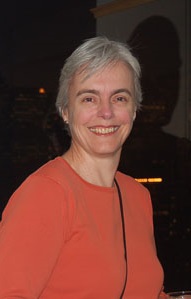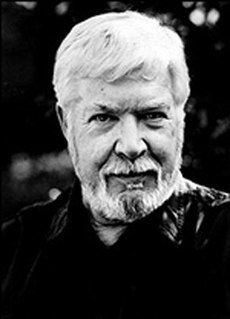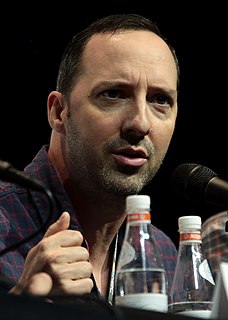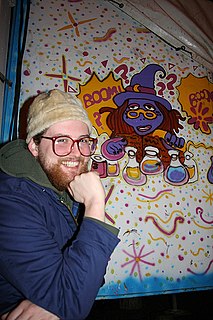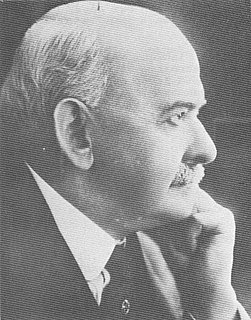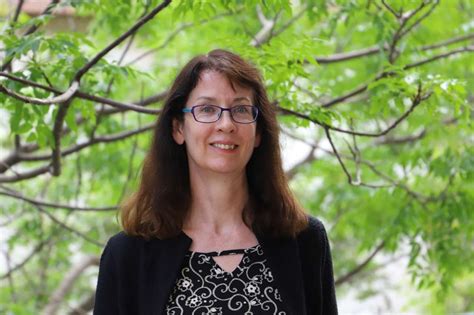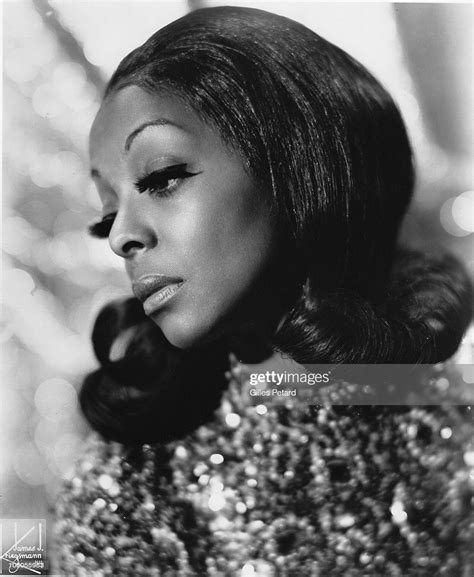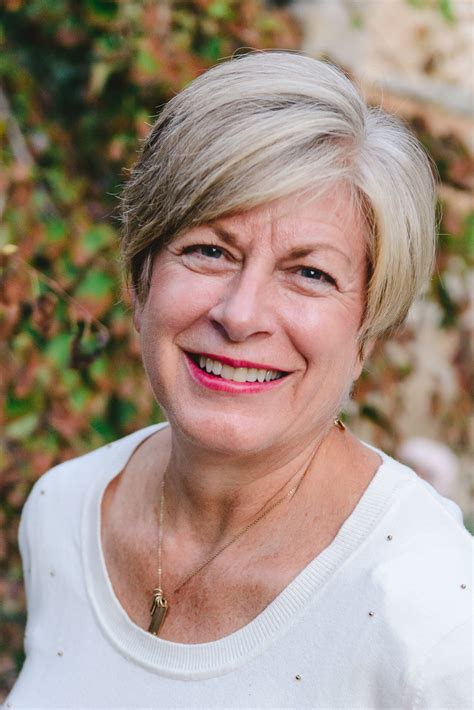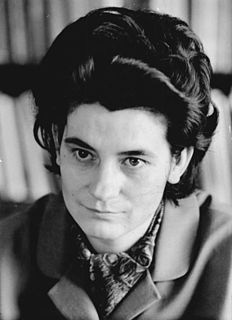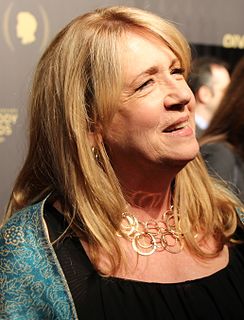Top 830 Draws Quotes & Sayings - Page 14
Explore popular Draws quotes.
Last updated on April 16, 2025.
There is something about talking in the night, with the shreds of sleep around your ears, with the silences between one remark and another, the town dark and dreaming beyond your own walls. It draws the truth out of you, straight from its little dark pool down there, where usually you guard it so careful, and wave your hands over it and hum and haw to protect people's feelings, to protect your own . . . You can bring out the jaggedest feelings - if you are my wife and know how to state them calm - into the night quiet. They will float there for consideration, harming no one.
I like to borrow a metaphor from the great poet and mystic Rumi who talks about living like a drawing compass. One leg of the compass is static. It is fixed and rooted in a certain spot. Meanwhile, the other leg draws a huge wide circle around the first one, constantly moving. Just like that, one part of my writing is based in Istanbul. It has strong local roots. Yet at the same time the other part travels the whole wide world, feeling connected to several cities, cultures, and peoples.
But all the while, there was one thing we most needed even from the start, and certainly will need from here on out into the New Jerusalem: the ability to take our freedom seriously and act on it, to live not in fear of mistakes but in the knowledge that no mistake can hold a candle to the love that draws us home. My repentance, accordingly, is not so much for my failings but for the two-bit attitude toward them by which I made them more sovereign than grace. Grace - the imperative to hear the music, not just listen for errors - makes all infirmities occasions of glory.
Authentic faith leads us to treat others with unconditional seriousness and to a loving reverence for the mystery of the human personality. Authentic Christianity should lead to maturity, personality, and reality. It should fashion whole men and women living lives of love and communion. False, manhandled religion produces the opposite effect. Whenever religion shows contempt or disregards the rights of persons, even under the noblest pretexts, it draws us away from reality and God.
That prayer has great power which a person makes with all his might. It makes a sour heart sweet, a sad heart merry, a poor heart rich, a foolish heart wise, a timid heart brave, a sick heart well, a blind heart full of sight, a cold heart ardent. It draws down the great God into the little heart; it drives the hungry soul up into the fullness of God; it brings together two lovers, God and the soul, in a wondrous place where they speak much of love.
What we are today comes from our thoughts of yesterday, and our present thoughts build our life of tomorrow: our life is the creation of our mind. If a man speaks or acts with an impure mind, suffering will follow him as the wheel of the cart follows the beast that draws the cart. If a man speaks or acts with a pure mind, joy follows him as his own shadow.
A man who is furnished with arguments from the mint, will convince his antagonist much sooner than one who draws them from reason and philosophy. - Gold is a wonderful clearer of the understanding; it dissipates every doubt and scruple in an instant; accommodates itself to the meanest capacities; silences the loud and clamorous, and cringes over the most obstinate and inflexible. - Philip of Macedon was a man of most invincible reason this way. He refuted by it all the wisdom of Athens; confounded their statesmen; struck their orators dumb; and at length argued them out of all their liberties.
Suggestion is generally better than Definition. There is a seeming dogmatism about Definition that is often repellent, while Suggestion, on the contrary, disarms suspicion and summons to co-operation and experiment. Definition provokes discussion. Suggestion provokes to love and good works. Defining is limiting. Suggestion is enlarging. Defining calls a halt; Suggestion calls for an advance. Defining involves the peril of contentment: "I am here, I rest." "Thus far," says Definition, and draws a map. "Westward," cries Suggestion, and builds a boat.
And what you do is you go into where your anger is, if you're writing anger, you go into where your hatred is, if you're writing hatred. Your joy is, if you're writing joy. You find the source of the energy that draws hatred, anger, joy, etc., etc., etc. That's what you have to find. That's what you do as an actor and that's what you do as a writer. And you bring people to the page.
There is in all our strivings a profound homesickness for God. When we touch another we touch God. When we look at a flower, its radiance, its fragrance, its stillness is another moment's experience of something deeper within. When we hold a baby, when we hear extraordinary music, when we look into the eyes of a great saint, what draws us is that deep homesickness for our true nature, for the peace and healing that is our birthright. This homesickness for God directs us toward the healing we took birth for.
I'm socially awkward. What draws me to playing socially awkward characters? I think they're interesting. I'm fascinated kind of by - I mean, I know I'm sure I've got my own social awkwardness but I'm kind of fascinated by that and I lived, probably, I attribute it - I lived in New York for a long time, road the subways, saw a lot of awkwardness, but they're just interesting. They're not cookie cutter. They're usually very colorful characters. They see things different ways and, I don't know, its just a kind of - just a kind of life that interesting to me.
A Panda walks into a cafe. He orders a sandwich, eats it, then draws a gun and fires two shots into the air. "Why?" asks the confused waiter, as the panda makes toward the exit. The panda produces a badly punctuated wildlife annual and tosses it over his shoulder. "I'm a Panda," he says, at the door. "Look it up." The waiter turns to the relevant entry, and, sure enough, finds an explanation. Panda. Large black and white bear-like mammal, native to China. Eats, shoots and leaves.
I often envy a filmmaker or a playwright or an author where people are like, "Yeah, I sat down every night and read your book and it was beautiful." Or, "Yeah, I went to the movies and all I did was watch the movie because that's all you could do at the movies." Where with music, it's like, "Ugh, I love your music. I listen to it while I'm jogging thinking about how I hate my body." But it is also the privilege of being a musician is you can have your music in this documented form and play it live and that's, I think, what draws me to it the most.
Good will is a power that can be used every day of the year and every hour of the day. It is instantly available. By continuously practicing good will we cultivate a deep subconscious habit of good will. It becomes a pattern of our response in all situations. Good will works as silently as the sun and with as much power. It thaws the ice and snow of resistance and indifference. It warms and wins human hearts. It draws forth the best in others as flowers are drawn from the soil. It stimulates growth.
Superficial knowledge ... is hurtful to those who possess true genius; for it necessarily draws them away from their main object, wastes their industry over details and subjects foreign to their needs and natural talent, and lastly does not serve, as they flatter themselves, to prove the breadth of their mind. In all ages there have been men of very moderate intelligence who knew much, and so on the contrary, men of the highest intelligence who knew very little. Ignorance is not lack of intelligence, nor knowledge a proof of genius.
The life I walk binds my hands it makes me take things that I don’t understand I walk this dark world unknowing of what they hold true, forgetting the me I once knew, until you. The life I walk eternally was all I knew nothing more held me here to this earth until you. I feel the pain of every heart I take I feel the desire to replace all that I have grown to hate Darkness holds me close but the light still draws my empty soul The emptiness where I used pain to fill the hole no longer controls me, no longer calls me because of you.
Very great charm of shadow and light is to be found in the faces of those who sit in the doors of dark houses. The eye of the spectator sees that part of the face which is in shadow lost in the darkness of the house, and that part of the face which is lit draws its brilliancy from the splendour of the sky. From this intensification of light and shade the face gains greatly in relief and beauty by showing the subtlest shadows in the light part and the subtlest lights in the dark part.
Know that the science of unveiling has no end to it, for it consists in the journey of the intellect in the stations of Majesty, Beauty, Sublimeness, Grandeur, and Holiness. . . . He to whom the mysteries of La ilaha illa'llah are revealed draws near to God, and his worship of God becomes sincere. He does not turn to anyone but to Him, nor does he have hope in or fear other than Him, nor does he see harm or benefit except as coming from Him. He abandons whosoever is not He and rids himself of inward and outward associationism (shirk).
The love of God again makes us free, for it draws us to set a low value on those things wherein we are subject to others - our wealth, our position, our reputation, and our life - and to set a high value on those things which no man can take from us - our integrity, our righteousness, our love for all men, and our communion with God.
She moved nearer, leaned her shoulder against me — and we were one, and something flowed from her into me, and I knew: this is how it must be. I knew it with every nerve, and every hair, every heartbeat, so sweet it verged on pain. And what joy to submit to this 'must'. A piece of iron must feel such joy as it submits to the precise, inevitable law that draws it to a magnet. Or a stone, thrown up, hesitating a moment, then plunging headlong back to earth. Or a man, after the final agony, taking a last deep breath — and dying.
In contemporary society secular humanism has been singled out by critics and proponents alike as a position sharply distinguishable from any religious formulation. Religious fundamentalists in the United States have waged a campaign against secular humanism, claiming that it is a rival "religion" and seeking to root it out from American public life. Secular humanism is avowedly non-religious. It is a eupraxsophy (good practical wisdom), which draws its basic principles and ethical values from science, ethics, and philosophy.
The phrase 'Sense of the Earth' should be understood to mean the passionate concern for our common destiny which draws the thinking part of life ever further onward. The only truly natural and real human unity is the spirit of the Earth. . . .The sense of Earth is the irresistable pressure which will come at the right moment to unite them (humankind) in a common passion.The Age of Nations is past. The task before us now, if we would not perish, is to build the Earth.
A God who draws near out of love, the Holy Father continued, walks with His people, and this walk comes to an unimaginable point. We could never have imagined that the same Lord would become one of us and walk with us, be present with us, present in His Church, present in the Eucharist, present in His Word, present in the poor, He is present, walking with us. And this is closeness: the shepherd close to his flock, close to his sheep, whom he knows, one by one.
What is it to 'walk in the Spirit'? It is not self-occupation, nor even occupation with the Spirit. Walking according to the Spirit is occupation with the Lord Jesus Christ in glory. If the believer ever looks to the Lord Jesus, depends upon Him, draws all his needs from Him- if He is his All in all- then the believer walks according to the Spirit of Christ.
It's like he has emotional amnesia... I think you have to accept that the person you knew isn't there at the moment. I was witness to how much he loved you. I have the photos. This isn't the person we knew. I don't recognize this person. He's shed his skin." Her heart is broken too. She has to say the thing that will give me back my life. She draws on every reserve. I see how much it hurts her and it hurts me too. I came from her joy and her pain, I lived in it and I live in it now.
I come from under the hill, and under the hills and over the hills my paths led. And through the air. I am he that walks unseen. I am the clue-finder, the web-cutter, the stinging fly. I was chosen for the lucky number. I am he that buries his friends alive and drowns them and draws them alive again from the water. I came from the end of a bag, but no bag went over me. I am the friend of bears and the guest of eagles. I am Ringwinner and Luckwearer; and I am Barrel-rider.
Just as a moral distinction is drawn between "those at risk" and "those posing a risk", health education routinely draws a distinction between the harm caused by external causes out of the individual's control and that caused by oneself. Lifestyle risk discourse overturns the notion that health hazards in postindustrial society are out of the individual's control. On the contrary, the dominant theme of lifestyle risk discourse is the responsibility of the individual to avoid health risks for the sake of his or her own health as well as the greater good of society.
I am a dedicated madman, and that becomes its own training. If you can't resist, if the typewriter is like candy to you, you train yourself for a lifetime. Every single day of your life, some wild new thing to be done. You write to please yourself. You write for the joy of writing. Then your public reads you and it begins to gather around your selling a potato peeler in an alley, you know. The enthusiasm, the joy itself draws me. So that means every day of my life I've written. When the joy stops, I'll stop writing.
The night comes for the purpose of checking our busy employment, and introducing an interval of repose between the links of our action and our aspiration. It draws its dim curtain around the field of toil. It buries the objects of our handiwork in darkness, and involves them with uncertainty. It comes to the relief of the exhausted body and the tired brain. Our powers, harmonizing with the diurnal revolutions of the earth, fail with the failing light, and a merciful Providence casts around us this mantle of shadow, and snatches us from our occupation.
I wish more fantasy, especially the dominant fantasy that draws heavily on British and Christian lore, would wrestle with its own ethnospecific nature and what that means when the story is set somewhere where more than one belief system is in operation. If all you do is pay lip service to it, you can get the kind of thing where the writer has thrown one Hindu god into a Christianist fantasy (rendering said god by default a demon or otherwise inferior to the dominant religious system of the story, which is such an insult), and the hero is able to vanquish it by chanting a spell in church Latin.
Science regards man as an aggregation of atoms temporarily united by a mysterious force called the life-principle. To the materialist the only difference between a living and a dead body is, that in the one case that force is active, in the other latent. When it is extinct or entirely latent, the molecules obey a superior attraction, which draws them asunder and scatters them through space. This dispersion must be death, if it is possible to conceive such a thing as death where the very molecules of the dead body manifest an intense vital energy.
When a woman is making love with a man, a sense of heat in her brain, which brings forth with it sensual delight, communicates the taste of that delight during the act and summons forth the emission of the man's seed. And when the seed has fallen into its place, that vehement heat descending from her brain draws the seed to itself and holds it, and soon the woman's sexual organs contract and all parts that are ready to open up during the time of menstruation now close, in the same way as a strong man can hold something enclosed in his fist.
I suppose all moms have an idea who they hope their daughters will be. Like a connect-the-dots picture where you think you know what shape it will become. But then it's the daughter who draws the lines, and she might connect the dots you didn't intend, making a whole different picture. So I've gotta trust the dots she's given me, and she's gotta trust me to draw the picture myself.
Now the Father draws us from the evil of sin to the goodness of His grace with the might of His measureless power, and He needs all the resources of His strength in order to convert sinners, more than when He was about to make heaven and earth, which He made with His own power without help from any creature. But when He is about to convert a sinner, He always needs the sinner's help. "He converts thee not without thy help," as St. Augustine says.
The empire of Saturnus is gone by;
Lord of the secret birth of things is he;
Within the lap of earth, and in the depths
Of the imagination dominates;
And his are all things that eschew the light.
The time is o'er of brooding and contrivance,
For Jupiter, the lustrous, lordeth now,
And the dark work, complete of preparation,
He draws by force into the realm of light.
Now must we hasten on to action, ere
The scheme, and most auspicious positure
Parts o'er my head, and takes once more its flight,
For the heavens journey still, and adjourn not.
The purpose of life seems to be to acquaint a man with himself and whatever science or art or course of action he engages in reacts upon and illuminates the recesses of his own mind. Thus friends seem to be only mirrors to draw out and explain to us ourselves; and that which draws us nearer our fellow man, is, that the deep Heart in one, answers the deep Heart in another, - that we find we have (a common Nature) - one life which runs through all individuals, and which is indeed Divine.
Many young people adopt pleasures for which they have not the least taste, only because they are called by that name.... You mustallow that drunkenness, which is equally destructive to body and mind, is a fine pleasure. Gaming, that draws you into a thousand scraps, leaves you penniless, and gives you the air and manners of an outrageous madman, is another most exquisite pleasure, is it not? As to running after women, the consequences of that vice are only the loss of one's nose, the total destruction of health, and, not unfrequently, the being run through the body.
Kinship among nations is not determined in such measurements as proximity of size and age. Rather we should turn to those inner things - call them what you will - I mean those intangibles that are the real treasures free men possess. To preserve his freedom of worship, his equality before law, his liberty to speak and act as he sees fit, subject only to provisions that he trespass not upon similar rights of others - a Londoner will fight. So will a citizen of Abilene. When we consider these things, then the valley of the Thames draws closer to the farms of Kansas and the plains of Texas.
I've always really loved big worlds and the kind of worldbuilding where you can open a portal into a new realm that feels full and complete. At the same time, I also really love history. So the combination of big worlds and history draws me directly into fantasy. Well, it should turn me towards historical fiction but I'm such a perfectionist about research that I'm not sure I could ever write a book in that genre properly. In fantasy, you have to have the same level of precision, but it's not as research-based. Plus, I get to write my little info sheets and draw my maps.
I say that creeds, dogmas, and theologies are inventions of the mind. It is the nature of the mind to make sense out of experience, to reduce the conglomerates of experience to units of comprehension which we call principles, or ideologies, or concepts. Religious experience is dynamic, fluid, effervescent, yeasty. But the mind can't handle these so it has to imprison religious experience in some way, get it bottled up. Then, when the experience quiets down, the mind draws a bead on it and extracts concepts, notions, dogmas, so that religious experience can make sense to the mind.
Notice carefully every word here. It is not our prayer which draws Jesus into our hearts. Nor is it our prayer which moves Jesus to come in to us. All He needs is access. He enters in of His own accord, because He desires to come in. To pray is nothing more involved than to let Jesus into our needs, and permitting Him to exercise His own power in dealing with them. And that requires no strength. It is only a question of our wills. Will we give Jesus access to our needs?.
Nature has many scenes to exhibit, and constantly draws a curtain over this part or that. She is constantly repainting the landscape and all surfaces, dressing up some scene for our entertainment. Lately we had a leafy wilderness; now bare twigs begin to prevail, and soon she will surprise us with a mantle of snow. Some green she thinks so good for our eyes that, like blue, she never banishes it entirely from our eyes, but has created evergreens.
Mothers who know do less. They permit less of what will not bear good fruit eternally. They allow less media in their homes, less distraction, less activity that draws their children away from their home. Mothers who know are willing to live on less and consume less of the world’s goods in order to spend more time with their children—more time eating together, more time working together, more time reading together, more time talking, laughing, singing, and exemplifying. These mothers choose carefully and do not try to choose it all.
My God, Sweetness beyond words, make bitter all the carnal comfort that draws me from love of the eternal and lures me to its evil self by the sight of some delightful good in the present. Let it not overcome me, my God. Let not flesh and blood conquer me. Let not the world and its brief glory deceive me, nor the devil trip me by his craftiness. Give me courage to resist, patience to endure, and constancy to persevere. Give me the soothing unction of Your spirit rather than all the consolations of the world, and in place of carnal love, infuse into me the love of Your name.
Health education emphasizing risks is a form of pedagogy, which, like other forms, serves to legitimize ideologies and social practices. Risk discourse in the public health sphere allows the state, as the owner of knowledge, to exert power of the bodies of its citizens. Risk discourse, therefore, especially when it emphasizes lifestyle risks, serves as an effective Foucauldian agent of surveillance and control that is difficult to challenge because of its manifest benevolent goal of maintaining standards of health. In doing so, it draws attention away from the structural causes of ill-health.
It is a great mistake for presidents and other leading executives of organizations having branches throughout the country to chain themselves to their desks at headquarters and send out rigid instructions to those in charge of distant branches and offices. Because a man sits in a palatial office in New York or Chicago or Philadelphia or Detroit and draws a big salary, it does not necessarily follow that he knows better than the man on the spot what ought to be done.... Paul, Caesar, Napoleon did not merely sit at home and issue long-range instructions.
Now writing is just working your way toward the border that the innermost secret draws around itself, and to cross that line would mean self-destruction. But writing is also an attempt to respect the borderline only for the truly innermost secret, and bit by bit to free the taboos around that core, difficult to admit as they are, from their prison of unspeakability. Not self-destruction but self-redemption. Not being afraid of unavoidable suffering.
Long ago, during my apprenticeship in the wine trade, I learned that wine is more than the sum of its parts, and more than an expression of its physical origin. The real significance of wine as the nexus of just about everything became clearer to me when I started writing about it. The more I read, the more I traveled, and the more questions I asked, the further I was pulled into the realms of history and economics, politics, literature, food, community, and all else that affects the way we live. Wine, I found, draws on everything and leads everywhere.
There are so many fantastic roles, but the ones that have always drawn me to them are the loners who, for whatever reason, never quite fit in and knew it and had to find their own way. I've always been drawn to that, for some reason. I've always been drawn to that sad, isolated place, but what it produces in behavior is something else, entirely. For whatever reason, I'm drawn to these people. Essentially, I think what draws me is that they are survivors against rather considerable odds.
I am an obscure and patient pearl-fisherman who dives into the deepest waters and comes up with empty hands and a blue face. Some fatal attraction draws me down into the abysses of thought, down into those innermost recesses which never cease to fascinate the strong. I shall spend my life gazing at the ocean of art, where others voyage or fight; and from time to time I’ll entertain myself by diving for those green and yellow shells that nobody will want. So I shall keep them for myself and cover the walls of my hut with them.
